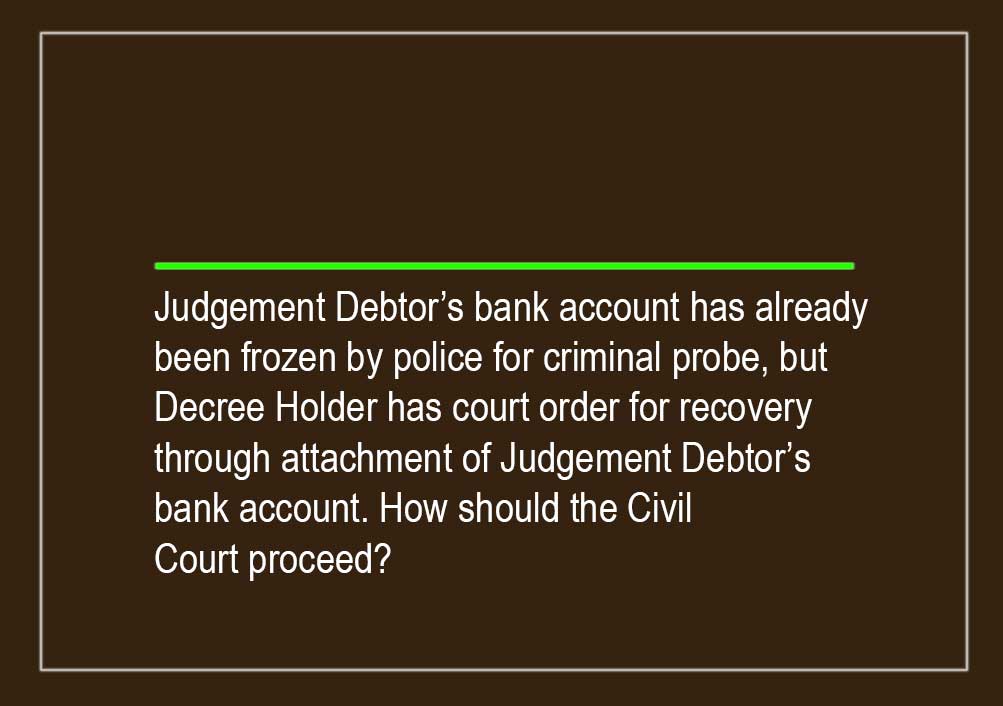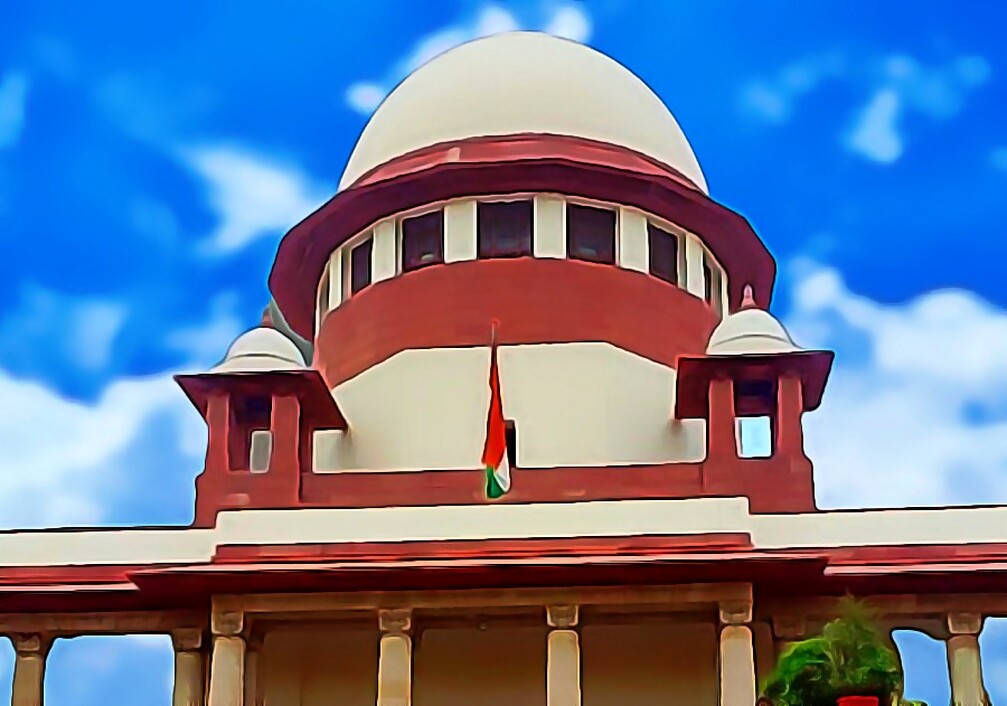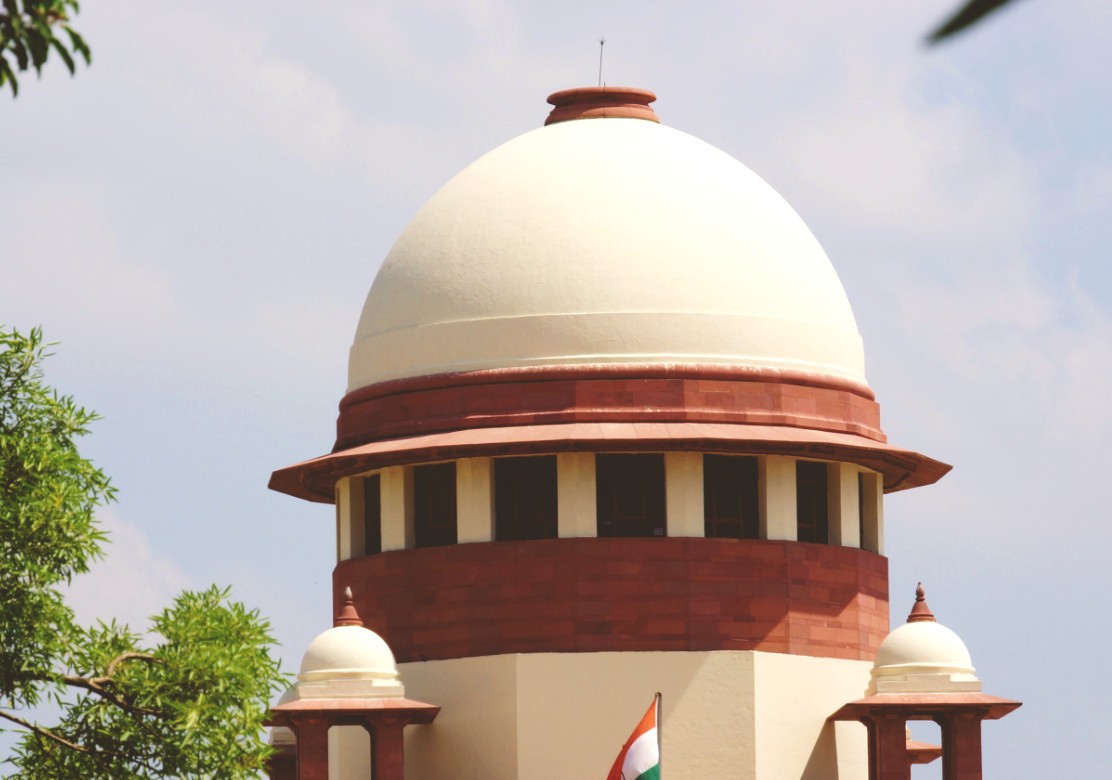Query: The Judgment Debtor’s bank account has been frozen by the police for criminal investigation. In the meanwhile, the Decree Holder has received an attachment order from the Civil Court for attachment of the Judgment Debtor’s bank account/directions to deposit the amount in the court. In such a scenario, how can the Civil Court proceed?

By LE Staff
May 21, 2021
I. State of Maharashtra Vs. Tapas D.Neogy [(1999) 7 SCC 685]
Supreme Court of India | 16-09-1999
In the said case, the Supreme Court has ruled that bank account falls within the meaning of the property mentioned under Section 102 of Cr.P.C., and that, unless the freezing of the bank account is in accordance with section 102 of Cr.P.C., the same cannot be legally sustainable.
The said provisions are extracted herein below in extenso: “Sec.102. Power of Police Officer to seize certain property
1. Any police officer may seize any property which may be alleged or suspected to have been stolen, or which may be found under circumstances which create suspicion of the commission of any offence.
2. Such police officer, if subordinate to the officer in charge of a police station shall forthwith report the seizure to that officer.
3. Every Police Officer acting under sub-sec.(1) shall forthwith report the seizure to the Magistrate having jurisdiction and where the property seized is such that it cannot be conveniently transported to the Court, he may give custody thereof to any person on his executing a bond undertaking to produce the
property before the Court as and when required and to give effect to the further orders of the Court as to the disposal of the same.”
II. Dr.Shashikant D.Karnik Vs. State of Maharashtra Through Anti Corruption Bureau [(2008) CRILJ 148]
High Court of Bombay | 17-04-2007
In the said case, the Bombay High Court has made the following observation regarding Section 102, Cr.P.C:
“18. So far as requirement under Section 102 (1) is concerned, it is obligatory upon the police to show that the property which they want to attach or attaching is under circumstances which create suspicion of the commission of any offence.”
“19. Second requirement of Section 102 (2) of Cr.P.C. is that the officer seizing the account or attaching the account subordinate to the officer in charge of the police station has to forthwith report the seizure or attachment to his superior i.e. to the officer in charge of the police station.”
“20. Third requirement of Sub Section (3) of Section 102, lays down a mandate that every police officer acting under Sub-section (1) shall forthwith report the seizure or attachment of accounts to the Magistrate having jurisdiction.”
III. S. Vaikundarajan vs State Madras High Court | 28.04.2016
In the said case, the revision petitioners herein entered into an agreement dated 25.11.2008 to purchase the property of the second respondent herein. The agreement pertains to an extent of 20 acres 64 cents and 533 sq.ft. and the
agreed sale price was Rs.8,25,00,000/-. As per the agreement, the sale has to be concluded on or before 31.11.2011. If there is a breach on the part of the owner of the property (R2 herein), the revision petitioners are entitled to refund of the amount along with interest at the rate of 8% p.a. It was agreed by the vendor (R2) that steps would be taken to convert the agricultural lands into a commercial lands and to take necessary steps to get the lands reclassified in Revenue records. As it was not done, the revision petitioners filed a petition in A.R.C.No.2 of 2012 and obtained an award. The second respondent was directed to pay a sum of Rs.8,25,00,000/- with interest @ 6% p.a. The total amount of Rs.8,91,00,880/- was ordered to be paid within two months from the date of receipt of copy of the award. As the second respondent did not pay the amount, the revision petitioners filed E.P.No.50 of 2012 on 11.12.2012, seeking legal remedy against the second respondent. The Executing Court ordered attachment of SB A/c. No.606601508801 of ICICI Bank, Kancheepuram Branch, which was held in the joint names of Shri. A. Jayaraman, brother of Shri. A. Subbiah and Smt. Janaki (second respondent herein) vide order dated 20.09.2013, which was made absolute on 10.10.2013.
During the investigation of this case, the SB Account which stood in the names of Shri A. Jayaraman, brother of Shri Subbiah and Smt. Janaki was frozen on 15.06.2012 vide an order under Section 102 Cr.P.C. and the same was intimated to the Special Judge for CBI Cases, Madurai. During the course of investigation of this case, i.e. in R.C.55(A)/2012, again the account was frozen on 04.01.2013 vide an order under Section 102 Cr.P.C. and the same was intimated to the Court.
Court made the following observations:
It was the case of CBI that the money standing in the Bank Account of the second respondent is the subject matter of an offence and the revision petitioners should not be allowed to enjoy the fruits of the crime. The Court
rejected this contention stating that the revision petitioners are not asking for any money from the pocket of the second respondent and what is asked for is the return of their own money paid by them earlier.
Revision petitioners contended that the mandatory procedure, as contemplated under Section 102 Cr.P.C. while freezing the bank account, has not been followed and therefore, the order freezing the account of the second respondent are illegal. The Court observed that the order freezing the account of R2 is not valid. Under normal circumstances, the order freezing the account could be questioned only by R2. But, the revision petitioners, having acquired interest in the deposited amount, have the right to challenge the freezing order.
At para 21, the court has made the observation that the party, who obtained a decree, on 02.08.2012, cannot be deprived of the fruits of the decree till in the year 2016.
While disposing of the Civil Revision Petition, the court had directed the following:
(i) The petitioner shall furnish Bank Guarantee for a sum of Rs.6,03,00,000/-, which is available in ICICI Bank, Kancheepuram, in Savings Bank A/c. No.606601508801 standing in the name of the second respondent. Such guarantee shall be furnished within a period of two weeks from the date of receipt of a copy of this order.
(ii) On such guarantee being furnished, the amount lying in Garnishee Bank is ordered to be sent for to the Executing Court and the said funds are ordered to be disbursed to the Revision Petitioners herein.
IV. Krishna Bhatt v. State Bank of India
(High Court Of Kerala) | 19-01-1989
In this case, the following impugned order was challenged by the Petitioner:
“… The decree holder Bank obtained a decree for recovery of the amounts misappropriated by the judgment debtor from the decree holder Bank by forging documents and falsifying accounts while he was working in the Bank as a Clerk- cum-Cashier. Under the decree the Bank is entitled to realise a sum of Rs. 1,40,000/- from the judgment debtor. One such misappropriation was made by the judgment debtor (second respondent herein) on 27-5-82 by forging a banker’s cheque for a sum of S.10,858.70P in favour of the 3rd respondent in this petition who is his brother-in-law. The C.B.I. charge sheeted the judgment debtor for offences of criminal breach of trust, forgery and falsification of accounts. The judgment debtor pleaded guilty to the charge and he was convicted by the special court. During the course of investigation, the C.B.I. freezed the account of the 3rd respondent in relation to the sum of Rs. 10,858.70P misappropriated by the judgment debtor. The 3rd respondent is only a namelender for the judgment debtor in respect of this amount. In fact, the 3rd judgment debtor was an abettor of the offence committed by the judgment debtor. 3rd. respondent has no manner of right in this amount misappropriated by the judgment’ debtor from the decree holder…” (emphasis supplied)
The Court observed that the facts clearly show that the petitioner has been helping the judgment debtor to conceal the money, the judgment debtor misappropriated by using forged bank cheque, from the reach of the decree- holder bank. The petitioner therefore is bound to repay the amount credited in his account with the Corporation Bank to the decree-holder Bank.
V. Chandra Mohan Jha V. State Of Meghalaya
High Court of Meghalaya | 13.10.2015
In this case, application had been filed by the Applicant for de-freezing of Bank Account and release of substantial amount of money during the pendency of the case.
On two different dates, the Chief Judicial Magistrate vide orders dated 17.01.2014 and 28.11.2014 had de-frozen and released several Bank Accounts merely on the concession given by the Investigating Officer even after freezing of the Bank Accounts during the course of investigation.
The Court ruled that for enabling the applicant/petitioner to meet the financial obligations of the CMJ Foundation, the CMJ University and also in respect of individual liability and that of family members and to make the CMJ University functional in terms of the judgment of the learned single Judge passed in WP(C)No. 177 of 2014, for the present, an amount of Rs. 15,62,43,477.46 out of the frozen amount of Rs. 30,42,87,709.17 belonging to the CMJ Foundation should be released.
CONCLUSION
From the above arguments, discussions and decisions the following points emerge:
A. The police draws its power to activate the process of freezing bank account from Section 102 of the Code of Criminal Procedure (CrPC). Firstly it is to be seen whether the mandatory requirement of section 102, Cr.P.C has been followed by the police or not in freezing the account of the Judgment Debtor and whether the same is legally sustainable or not.
B. Secondly, ongoing investigation by police/freezing of account is no bar for the civil court to proceed with the execution proceedings and the courts have authority to pass necessary directions with respect to release of funds from frozen amounts/ pass appropriate orders.
Sign up for our weekly newsletter to stay up to date on our product, events featured blog, special offer and all of the exciting things that take place here at Legitquest.




Add a Comment